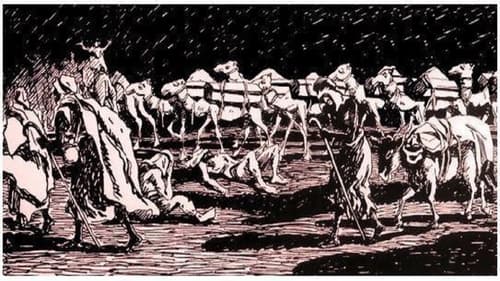Marie Luise Droop
출생 : 1890-01-15, Stettin, Pomerania, Germany [now Szczecin, Zachodniopomorskie, Poland]
사망 : 1959-08-22

Writer

Writer
German colonial soldiers fight against the British during World War I.

Screenplay
While out dancing, two sailors fall for the same girl.

Writer

Writer
The young student Mary spends the beginning of her holiday with boat trips, visits to her wealthy groom, and gardening. In fast-paced, rhythmic cuts, Louise and Jakob Fleck draw their audience into a carefree, urban romantic comedy. With a single scene, however, it turns into a melodrama about sexual violence, shame and perpetrator-victim reversal.

Writer
Film by Wolfgang Neff.

Writer

Writer

Writer

Writer

Writer

Screenplay

Screenplay

Screenplay
Returning home after a lengthy time at sea, a man must choose between his childhood sweetheart and another woman who was somehow involved with the untimely death of his brother.

Writer

Screenplay
The Maharaja of Odhapur goes on a trip to Europe and meet the young dancer Ellen Esmond. In her London accommodation, the Savoy Hotel, the Indian prince can prove to be a gallant gentleman and protect Ellen from an intrusive theatrical agent. The Maharaja asks the artist to entertain his guests the following evening with her dancing skills, including England's representatives in India. The maharaja is thrilled with both the person Ellen and her dance performances. His brother Bhima, who was always in the shadow of the Maharajah, drinks excessively and also is also magically attracted to Ellen Esmond.

Writer
In the wild, hardly explored mountains of Kurdish country lives the mysterious society of the Jesidi , who are called the devil worshipers by their opponents. In these mountains, shaded by dark fir trees, revenge and hatred reign and constant struggle between the countless races and sects. Strange festivals unite the fervor of thousands, crowned by the dramatic sacrificial death of one of their holy men. And yet, even in these pictures, which are filled with tremendous passion, there is no lack of warm humor and a cheerful, strong forgiving nature that leads everything to a liberating end.
The film is believed to be lost.

Director
In the wild, hardly explored mountains of Kurdish country lives the mysterious society of the Jesidi , who are called the devil worshipers by their opponents. In these mountains, shaded by dark fir trees, revenge and hatred reign and constant struggle between the countless races and sects. Strange festivals unite the fervor of thousands, crowned by the dramatic sacrificial death of one of their holy men. And yet, even in these pictures, which are filled with tremendous passion, there is no lack of warm humor and a cheerful, strong forgiving nature that leads everything to a liberating end.
The film is believed to be lost.

Producer
Caravan of Death (German: Die Todeskarawane) is a 1920 silent German film, it was an adaptation of the latter half of the Karl May novel From Baghdad to Stamboul, and is now considered to be lost.
The film featured Bela Lugosi playing an Arab Sheik pitted against European travellers in an adventure story set in the Sahara. It was the second of three films released by Ustad based on desert adventure novels by Karl May. Although Karl May’s widow praised the film, critics were unimpressed and it was a commercial failure.

Writer
Caravan of Death (German: Die Todeskarawane) is a 1920 silent German film, it was an adaptation of the latter half of the Karl May novel From Baghdad to Stamboul, and is now considered to be lost.
The film featured Bela Lugosi playing an Arab Sheik pitted against European travellers in an adventure story set in the Sahara. It was the second of three films released by Ustad based on desert adventure novels by Karl May. Although Karl May’s widow praised the film, critics were unimpressed and it was a commercial failure.

Producer
Based on the novel The Black Tulip by Alexandre Dumas.

Screenplay
Based on the novel The Black Tulip by Alexandre Dumas.

Director
Based on the novel The Black Tulip by Alexandre Dumas.

Producer

Writer

Writer

Writer

Writer

Writer






